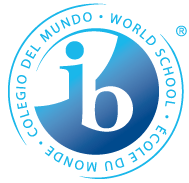
IGCSE

Introduction
Since its introduction over 25 years ago, Cambridge IGCSE has grown to be the world’s most popular international qualification for 14 to 16 year olds.
With its 70 subjects, available in any combination and including more than 30 languages, the Cambridge IGCSE curriculum offers a variety of routes for learners with a wide range of abilities, including those whose first language is not English. It develops learner knowledge, understanding and skills in:
• subject content
• applying knowledge and understanding to new as well as familiar situations
• intellectual enquiry
• flexibility and responsiveness to change
• working and communicating in English
• influencing outcomes
• cultural awareness.
Assessment takes place at the end of the two-year course and offers students a range of ways to demonstrate their learning, including written, oral, coursework and practical assessments. The grades awarded at Cambridge IGCSE are A*– G, with A* being the highest.
Internationally recognized
Cambridge IGCSE qualifications are recognised by leading universities around the world and employers view it as a valuable certificate of achievement. In the UK, Cambridge IGCSE is accepted as equivalent to the GCSE.
A good grade (grade C or above) in Cambridge IGCSE English as a Second Language is accepted for entry by a number of universities as evidence of competence in the English language.
IGCSEs prepare and equip students with the skills they need to succeed at university and beyond.
Universities tell us that they value the independent research, critical thinking skills and deep subject knowledge the qualifications bring.


The Subjects
Cambridge ICE is a special, additional award that IGCSE students can strive to achieve.
It allows schools to offer a broad and balanced curriculum and recognise the achievements of learners who pass examinations in at least seven Cambridge IGCSE subjects from five different subject groups, including two different languages (ideal for our bilingual community):
The Cambridge IGCSE subjects are grouped into five curriculum areas:
• Group I: Languages
• Group II: Humanities and Social Sciences
• Group III: Sciences • Group IV: Mathematics
• Group V: Creative and Professional
Learners must take two different languages from Group I, and one subject from each of Groups II, III, IV and V.
The seventh subject can be taken from any of the five subject groups. SVIS believes the IGCSE programme is the most coherent and best approach to preparing students for the IBDP.

